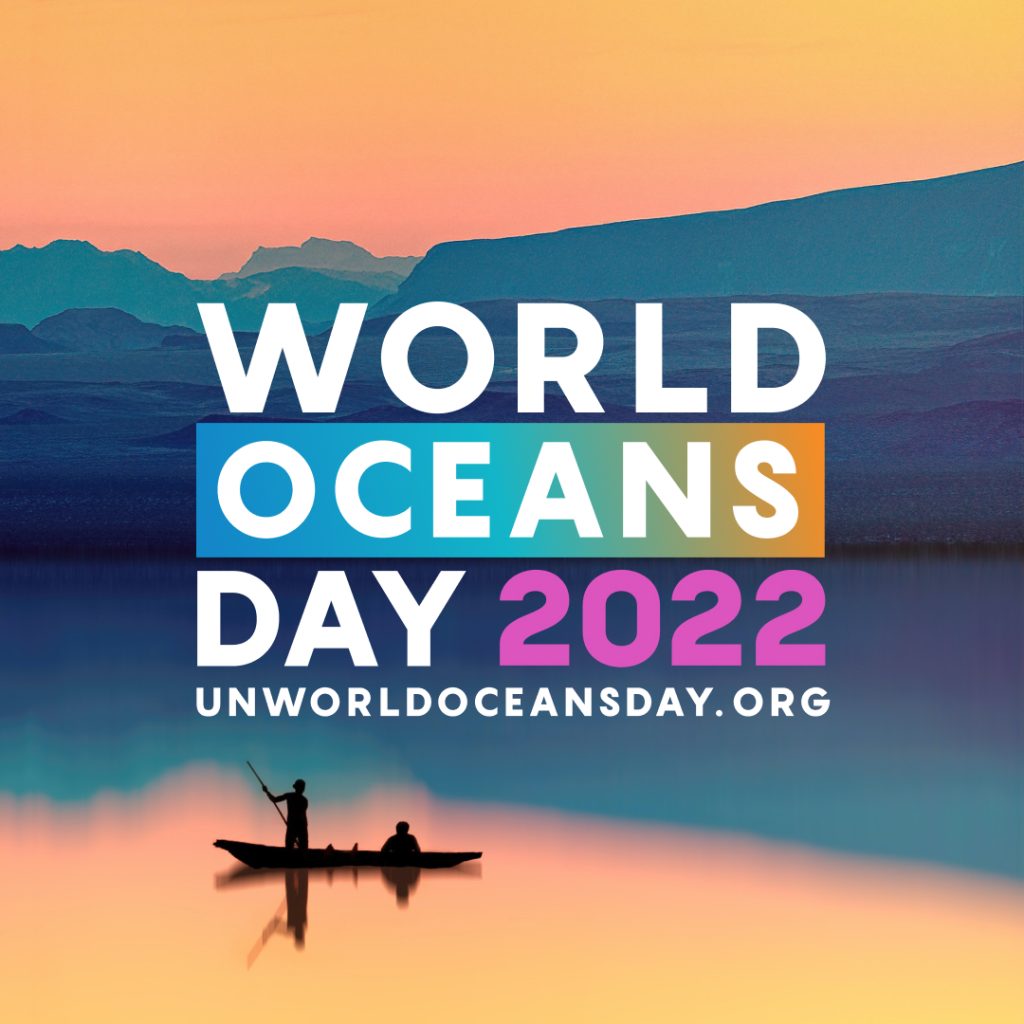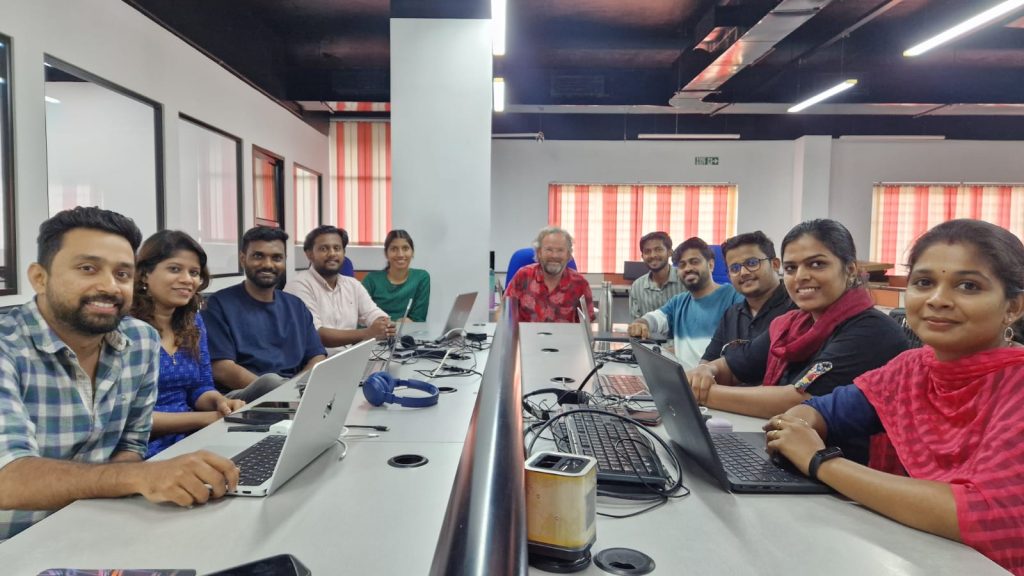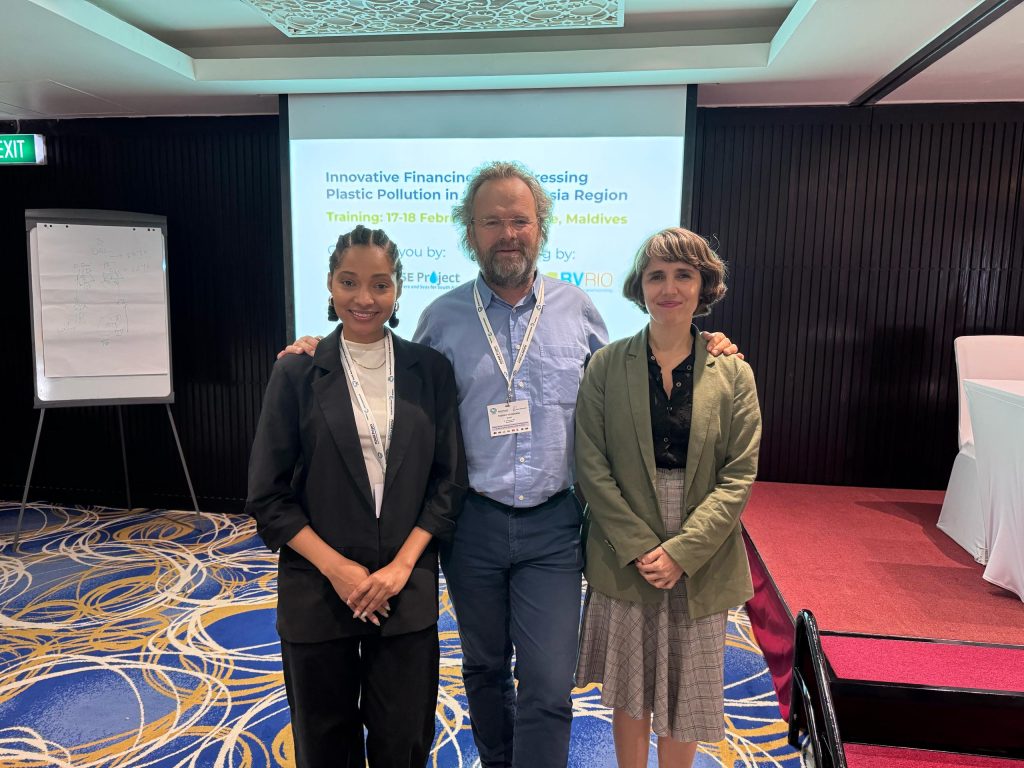2021-2030 was declared the United Nations Decade of Ocean Science for Sustainable Development, where top of the list of desirable outcomes is ‘a clean ocean where sources of pollution are identified and reduced or removed’.
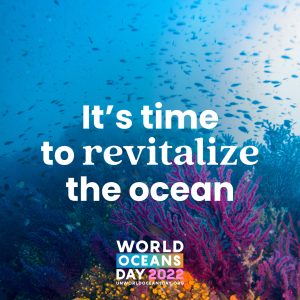 Despite many years of the media spotlight on plastic pollution in the ocean, the flow of solid waste shows few signs of slowing down, especially from countries where municipal waste collections and proper disposable is either non-existent or lacking, but there is hope. Along with technological advances in the production of alternative materials, recycling innovation, and circularity being built into production practices, there are millions of informal waste collectors working worldwide to remove, recycle and properly dispose of the waste which has already entered the environment before, and after, it enters the ocean.
Despite many years of the media spotlight on plastic pollution in the ocean, the flow of solid waste shows few signs of slowing down, especially from countries where municipal waste collections and proper disposable is either non-existent or lacking, but there is hope. Along with technological advances in the production of alternative materials, recycling innovation, and circularity being built into production practices, there are millions of informal waste collectors working worldwide to remove, recycle and properly dispose of the waste which has already entered the environment before, and after, it enters the ocean.
For the past decade BVRio has been at the forefront of developing market mechanisms to connect these informal waste workers with the producers who are responsible for the most commonly found ocean waste products, in order to safely, effectively, and profitably remove this waste from the environment. These initiatives now have a global reach and have evolved over time to help meet new legislation, and to utilise new technology.

Our history in this area goes back to our beginnings in 2011, with creation of the first plastic credits exchange, in 2013, our Reverse Logistics Credits scheme, but most recently, we are working in partnership with Italian social enterprise, Ogyre, on a project to manage the removal of solid waste from Guanabara Bay in Rio de Janeiro, by a community of local fishers. The project will see the team of fishers removing an estimated 100 tons of plastic waste from the bay in their traditional fishing boats during 2022, providing additional income for 25 families.

Their ‘catch’ is being registered and monitored through BVRio’s KOLEKT app, as part of the app’s field trials. KOLEKT uses images and GPS in order to verify the inputs of both the seller, the fishers, and the buyer, a local recycling cooperative, and the app’s web-based dashboard is used to track and administer all transactions.
News agency Reuters went to see the fishers in action this week, view their report.
This project is just one of the ocean waste projects listed on the Circular Action Hub. Currently there are 14 projects on the Hub dedicated to removing waste from waterways and the ocean.
From South America:
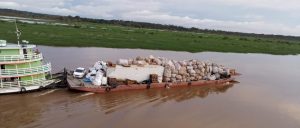
- Fishing for Litter in Rio de Janeiro (311)
- Recycling plastics from Amazon rivers (283)
- Biotoilet: no more sewage in the Amazon´s water (183)
From North America:
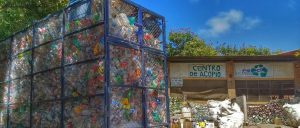
- Net your problem: fishing gear recycling USA (213)
- Plastic recovery and repurposing in Mexico beaches (156)
From Central America:
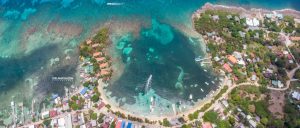
- Ocean mission™, a lavergne initiative, Haiti (251)
- Waste, people and reef health: circular economy in Honduras (208)
From Europe:
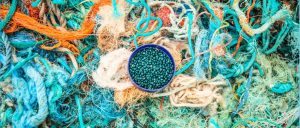
- Odyssey’s fishing net regeneration scheme, UK (193)
- Paddle for plastic campaign UK (108)
- River cleaning: floating waste collector in Italy (285)
From Asia:
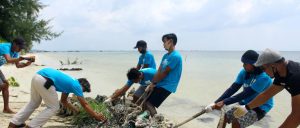
- Ocean plastic recovery from protected areas in Indonesia (209)
- Marine debris collection and plastic recovery in Indonesia (305)
- Second life Thailand: reduce plastic ocean pollution (192)
- Cleaning the Holy river Ganges in India (262)
Please login, without obligation, for the full project details, or to see a brief overview visit the project list.
The Hub features 100+ waste recovery and recycling projects from over 30 countries worldwide. Projects are listed, for free, to provide producers with a directory of initiatives which may be able to meet their needs in terms of fulfilling Extended Producer Responsibility (EPR) and Corporate Social and Environmental Responsibility (CSER) commitments.
To support the transparent trading of plastic credits, there are now four waste certification standards endorsed by the Hub, including added in 2021, the Ocean Bound Plastic Neutrality Subprogramme by Zero Plastic Oceans (ZPO). This market-based mechanism for financing the removal and treatment of non-commercially recyclable OBP, is complementary to the OBP Recycling Subprogram that caters for the commercially recyclable portion of the OBP. Combined, both Subprograms ensure all Ocean Bound Plastic can be collected and managed following environmentally sound and fair-trade practices.
Please contact us via: info@circularactionhub to discuss waste footprint solutions or involvement with the Hub.

